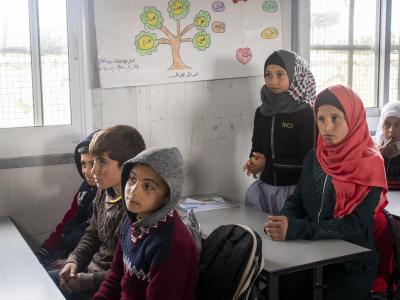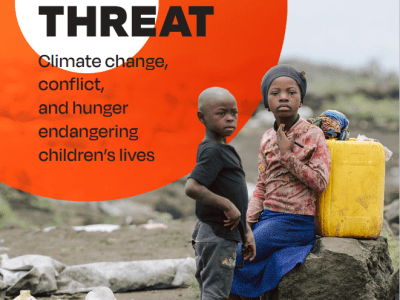publication / April 14, 2025
Baseline study for the Nutrition for Growth, Education and Learning (ANGEL) project
The study will be cross-sectional, collecting and analyzing data from key beneficiaries (students, teachers, smallholder farmers, healthcare professionals, etc.) at a specific point in time.
publication / April 9, 2025
Towards continued EU's commitment to Education in Emergencies
Humanitarian organisations urge continued EU leadership on education in emergencies.
article / April 16, 2025
World Vision's Community Based Education Programming Model Changing Youth Lives in Shurugwi Zimbabwe
Tapiwa eagerly registered for the CBE programme under the Sustainable Transformation Education Program—Unki Platinum (STEP-UP) project, funded by Anglo American.
article / April 7, 2025
Empowering Young Women in Malawi: Breaking barriers to health and education
Discover how Malawi's Adolescent Girls and Young Women (AGYW) project empowers young women like Loveness and Veronica to reclaim their health, education, and future through support and awareness.
article / April 14, 2025
Hooked on Growth: How Fish Farming is Feeding Education at Kamanika Primary
The school now boasts two well-maintained fish ponds, stocked with over 1,000 tilapia fingerlings. The project has quickly become a symbol of progress, with ripple effects extending beyond the classroom.
publication / April 17, 2025
Triple Threat: Climate Change, Conflict and Hunger endangering children's lives
Climate change, violence, and hunger are trapping vulnerable children in poverty. This report explores their intersection and the urgent need for action.
article / April 5, 2025
WORLD VISION – SANLAM PARTNERSHIP BOOSTS EDUCATIONAL ACCESS IN PADER AND AGAGO DISTRICTS
World Vision & Sanlam Uganda's 3-yr partnership improved education in Pader & Agago districts. Modern classrooms, latrines, and teachers houses were constructed & scholastic materials provided to schools. The partnership let behind a legacy of better learning spaces, hope for children & increased enrollment.







